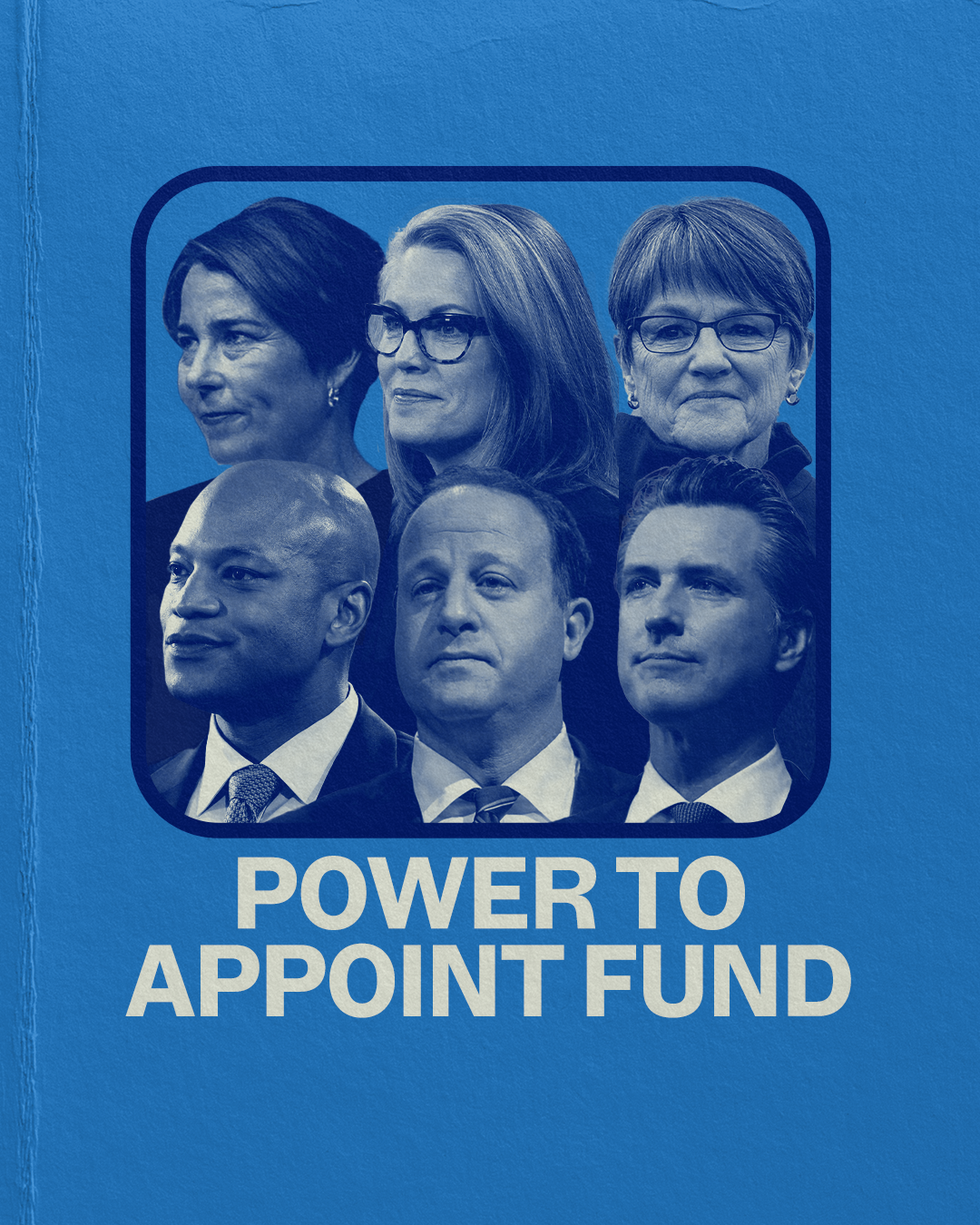
Can you donate now to join our fight?
We just launched the Power to Appoint Fund to highlight the important role Dem Govs play to ensure integrity in our country’s judicial process and protect fundamental freedoms. Your support will ensure we can make crucial investments in key states and protect our democracy. Please don’t wait: rush your gift to elect Democratic governors! >>>
DGA made key holds by doing more with less
Posted by Sean Sullivan on November 13, 2012 at 3:31 pm
Republicans achieved a milestone in 2012, adding a 30th governor to its rolls, a high-water mark for either party since 2000. But Democrats’ ability to hold seats in the cycle’s most competitive races was arguably a more remarkable feat.
How did they do it? Part of the answer is money, which at first blush may seem counter-intuitive, considering the extent to which the Republican Governors Association outpaced its Democratic counterpart in the fundraising battle.
Before delving too deeply into the dollars raised and spent, it’s helpful to first look at exactly what happened across the gubernatorial landscape. With Washington called for Democrat Jay Inslee last Friday, all of the 2012 races are now wrapped up.
Democrats were playing a lot of defense on Election Day. Eight of the 11 states holding gubernatorial elections were controlled by Democrats. In all but one of the eight (North Carolina), Democrats held onto control of the state’s top office.
In North Carolina, Gov. Bev Perdue (D) opted against a reelection bid amid lousy poll numbers, and Democrats struggled to recruit a replacement. The Democratic Governors Association didn’t completely roll over, spending more than $3 million (the RGA spent more than $5 million), but weren’t able to overcome a solid GOP recruit in Pat McCrory and a environment in the state favorable to Republicans, who picked up at least three U.S. House seats and helped Mitt Romney win there at the presidential level.
Aside from North Carolina, Republicans had three prime pickup opportunities in Montana, Washington, and New Hampshire. Democrats held all three, which each looked like tossups down the stretch.
“We spent all our money to fight to win every single one of the races and we deployed all the resources at our disposal,” DGA Executive Director Colm O’Comartun told The Fix.
Democratic-leaning Washington was always going to be an uphill climb for Republicans, but they recruited highly touted Attorney General Rob McKenna, giving the party hope. The RGA poured in more than $11 million to the DGA’s $5 million (which, when combined with outside money from labor and other Democratic groups, totaled a little over $9 million).
O’Comartun said that if Republicans had spent more money in New Hampshire and Montana, however, they might have won those races.
“There were three races that everyone agrees were pure tossups,” O’Comartun said. “If [the RGA] spent enough money at the right time, they could have changed the course of the races” in New Hampshire and Montana.
The DGA and RGA each spent about the same amount in New Hampshire (just under $8 million), according to estimates provided by the DGA and cross-checked with the RGA. In Montana, the DGA spent $3 million while the RGA spent $4.7 million.
When asked about the individual race spending levels, an RGA spokesman pointed to the pickup the GOP made in the gubernatorial landscape during what was an otherwise tough cycle for Republicans.
“The RGA has added a total of eight governorships over the last four years and was the only GOP committee to make gains in 2012,” said association spokesman Mike Schrimpf. “That success, which helped the GOP become the first political party in a dozen years to reach 30 governorships, is a direct result of the RGA’s smart budgeting and disciplined targeting.”
Through the end of the third quarter of this year, the RGA was lapping the DGA in overall fundraising. The RGA’s 527 arm brought in about $88 million for the cycle through September, and spent about $57 million. The DGA’s 527 arm raised about half that — $43 million — and spent about $35 million. The associations also have nonprofit arms and spent money in the final weeks of the 2012 campaign, so the total raised/spent for the cycle when all is said and done will be higher than the above figures.
The important takeaway is that Democrats appear to have spent a greater percentage of the money they raised than did the Republicans. Considering they were playing more defense, this isn’t too surprising. But given the RGA’s wide cash advantage, Republicans arguably could have expended a little more than they did.
One plausible explanation for the RGA not overwhelming the DGA with more money in key races is the cycle to come. The GOP has to defend 24 of the 38 seats up for grabs in 2013 and 2014, including two high-profile races in Virginia and New Jersey next year.
“With 38 governors’ races taking place over the next two years, there is no doubt that the RGA is well-positioned to continue winning a strong majority of governorships for the GOP,” Schrimpf said.
Before Tuesday, there were five other gubernatorial elections this cycle. The incumbent party held all five: Republicans held seats in 2011 in Mississippi and Louisiana, as well as in Wisconsin during a 2012 recall election there. Democrats held Kentucky and won a West Virginia special election, both in 2011.
To be clear, there were bright spots across the gubernatorial landscape for Republicans this cycle: They gained ground as House and Senate Republicans each lost some. Democrats’ failure to unseat Gov. Scott Walker (R) in the Badger State was seen as a crushing defeat for the party and labor. And the RGA continued to raise money at a torrid pace.
The RGA is expected to head into the next cycle with considerably more money in the bank than its Democratic counterpart. Time will tell if the decision not to spend more in 2012 will pay off down the road.
For Democrats, though, the money picture headed into the next cycle was never going to be pretty. By maximizing the use of its 2012 funds, the party found some measure of success in a cycle that could have been a disaster.
Read more: http://www.washingtonpost.com/blogs/the-fix/wp/2012/11/13/dga-made-key-holds-by-doing-more-with-less/

